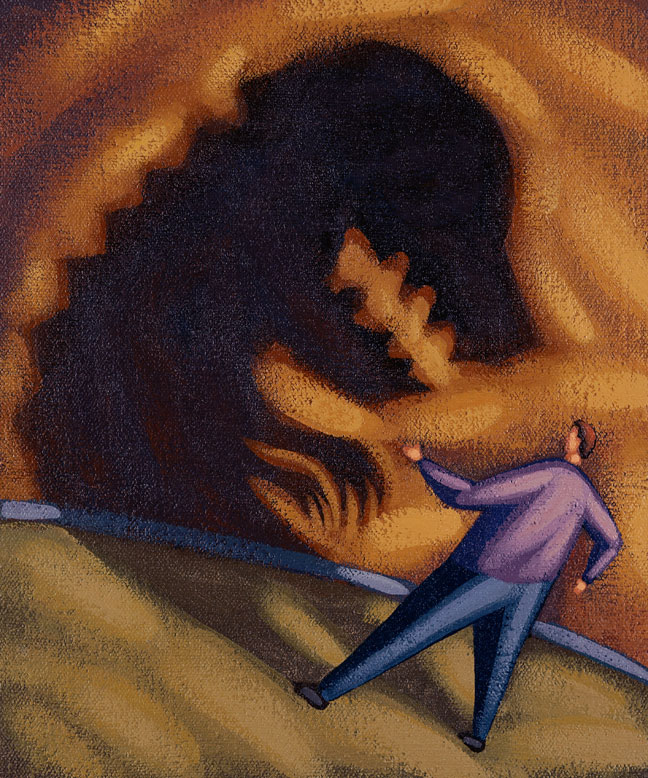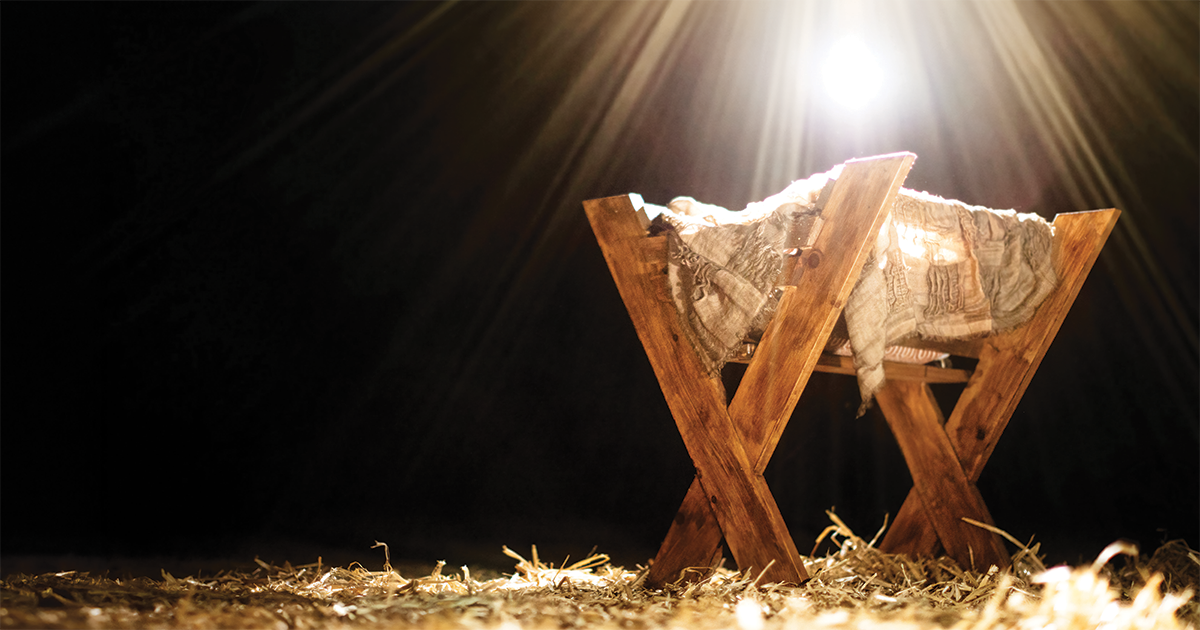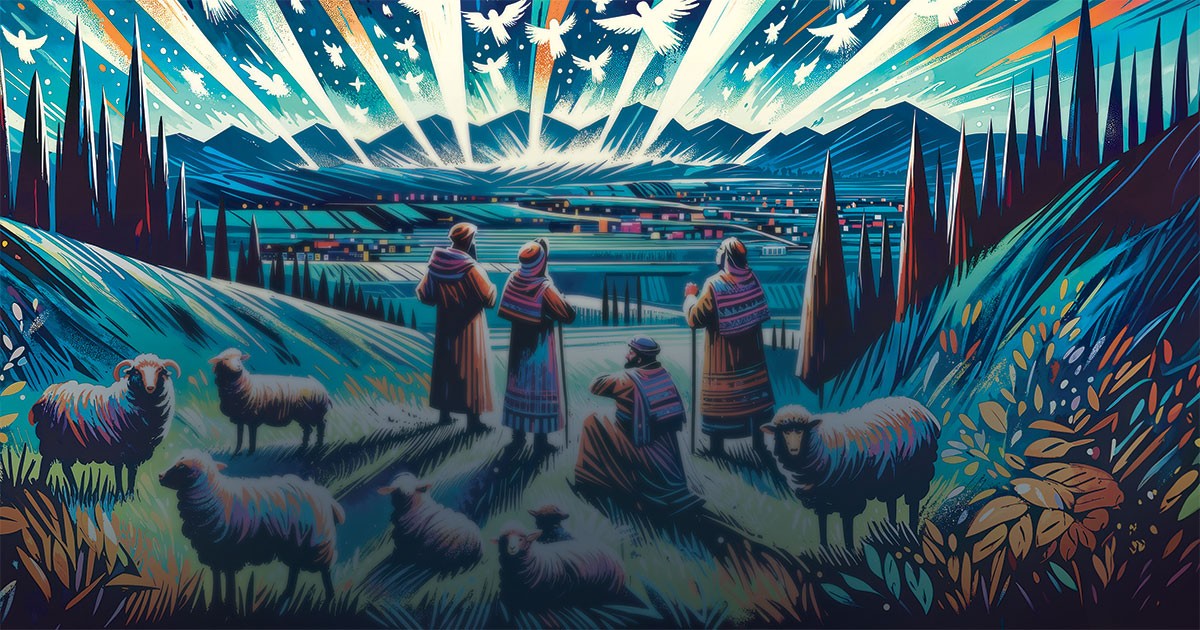When we visit our cottage on Mack Lake in Nova Scotia, we often take a walk at sunset. The shadows take on many shapes and sizes. To a little person, they might seem frightening. Years ago, shadows in the moonlight frightened me as I walked home along the edge of the woods; my overactive mind imagined all kinds of scary things waiting to grab me.
The Bible also speaks of shadows and reassures us that we need not be afraid. Psalm 23:4 says: “Even though I walk through the valley of the shadow of death, I will fear no evil, for you are with me; your rod and your staff, they comfort me” (ESV). Shadows elongate as they grow out of proportion to the shapes of the trees around them. As the sun slips below the horizon, so do the shadows disappear.
The shadows of our experiences come at various times in our lives. You might hear a police officer say: “I'm sorry; your son lost his life in a boating accident.” A family member or close friend might tell you: “The doctor said my cancer has spread.” Where fighting is taking its toll around the world, too many spouses will hear: “We regret to inform you….”
In Facing Your Giants, author Max Lucado says that at such moments, “spring becomes winter, blue turns to grey, birds go silent, and the chill of sorrow settles in. It's cold in the valley of the shadow of death.”
News of dread comes to all of us. It was no different in the life of David, the shepherd boy who would become the king of Israel following King Saul's death. David's messenger was a friend—a breathless Amalekite with torn clothing and hair full of dirt who stumbled into Camp Ziklag with the tragic news: “The people fled from the battle, and also many of the people have fallen and are dead, and Saul and his son Jonathan are also dead” (2 Samuel 1:4 ESV).
When the messenger showed him the crown and bracelet of the slain King Saul, it was undeniable proof that Saul and Jonathan were dead, leaving David to face yet another giant—grief. “The mighty warriors—fallen, fallen!” (2 Samuel 1:19 The Message) he replied. The King James Version says, “How are the mighty fallen!”
I, too, have felt grief—in the palliative care room of a hospital, watching a loved one pass from death to life eternal; after the tragic passing of a neighbour, killed in a motorcycle accident last June as a result of injuries sustained by striking a deer. In such situations, we, like David, have two choices: flee or face the giant.
Sometimes we choose to take flight because it is too painful to put up any resistance. What would have happened if Christ had given in to the temptation to give up the cross? There would have been no Resurrection and no Easter—no forgiveness of sins through the shedding of Christ's blood. As Jesus prayed to the Father in the Garden of Gethsemane, he cried: “Yet not my will, but yours be done” (Luke 22:42). Christ took up the cross and continued his painful journey to Calvary.
I remember when death took my beloved mentor from me, long ago. I remember, at her funeral, questioning why God would allow this to happen. I still needed her love and her wisdom, her support, yet now she was gone. I should have been happy for her, but I went through undeniable grief at the time. We have all been in similar situations.
Paul urges us to grieve, but not as people who have nothing to look forward to, as if the grave were the last word (see 1 Thessalonians 4:13). Yes, the shadows of tribulations may lengthen at times, but remember, Christ has overcome the world (see John 16:33), and he that believes has everlasting life (see John 3:36). We have the peace of God in our lives for the asking and need never be afraid of the valley of shadows.
When the shadows of adversity come upon us, remember, God is always in the light and he points the way forward for us. We need only to trust him and walk ahead in his presence, and the shadows will disappear.
Fred Jeffery is a retired corps sergeant-major at Westville Corps, N.S., in the Maritime Division.
Reprinted from New Glasgow News.
The Bible also speaks of shadows and reassures us that we need not be afraid. Psalm 23:4 says: “Even though I walk through the valley of the shadow of death, I will fear no evil, for you are with me; your rod and your staff, they comfort me” (ESV). Shadows elongate as they grow out of proportion to the shapes of the trees around them. As the sun slips below the horizon, so do the shadows disappear.
It's cold in the valley of the shadow of death
The shadows of our experiences come at various times in our lives. You might hear a police officer say: “I'm sorry; your son lost his life in a boating accident.” A family member or close friend might tell you: “The doctor said my cancer has spread.” Where fighting is taking its toll around the world, too many spouses will hear: “We regret to inform you….”
In Facing Your Giants, author Max Lucado says that at such moments, “spring becomes winter, blue turns to grey, birds go silent, and the chill of sorrow settles in. It's cold in the valley of the shadow of death.”
News of dread comes to all of us. It was no different in the life of David, the shepherd boy who would become the king of Israel following King Saul's death. David's messenger was a friend—a breathless Amalekite with torn clothing and hair full of dirt who stumbled into Camp Ziklag with the tragic news: “The people fled from the battle, and also many of the people have fallen and are dead, and Saul and his son Jonathan are also dead” (2 Samuel 1:4 ESV).
When the messenger showed him the crown and bracelet of the slain King Saul, it was undeniable proof that Saul and Jonathan were dead, leaving David to face yet another giant—grief. “The mighty warriors—fallen, fallen!” (2 Samuel 1:19 The Message) he replied. The King James Version says, “How are the mighty fallen!”
I, too, have felt grief—in the palliative care room of a hospital, watching a loved one pass from death to life eternal; after the tragic passing of a neighbour, killed in a motorcycle accident last June as a result of injuries sustained by striking a deer. In such situations, we, like David, have two choices: flee or face the giant.
Sometimes we choose to take flight because it is too painful to put up any resistance. What would have happened if Christ had given in to the temptation to give up the cross? There would have been no Resurrection and no Easter—no forgiveness of sins through the shedding of Christ's blood. As Jesus prayed to the Father in the Garden of Gethsemane, he cried: “Yet not my will, but yours be done” (Luke 22:42). Christ took up the cross and continued his painful journey to Calvary.
I remember when death took my beloved mentor from me, long ago. I remember, at her funeral, questioning why God would allow this to happen. I still needed her love and her wisdom, her support, yet now she was gone. I should have been happy for her, but I went through undeniable grief at the time. We have all been in similar situations.
Paul urges us to grieve, but not as people who have nothing to look forward to, as if the grave were the last word (see 1 Thessalonians 4:13). Yes, the shadows of tribulations may lengthen at times, but remember, Christ has overcome the world (see John 16:33), and he that believes has everlasting life (see John 3:36). We have the peace of God in our lives for the asking and need never be afraid of the valley of shadows.
When the shadows of adversity come upon us, remember, God is always in the light and he points the way forward for us. We need only to trust him and walk ahead in his presence, and the shadows will disappear.
Fred Jeffery is a retired corps sergeant-major at Westville Corps, N.S., in the Maritime Division.
Reprinted from New Glasgow News.










Leave a Comment